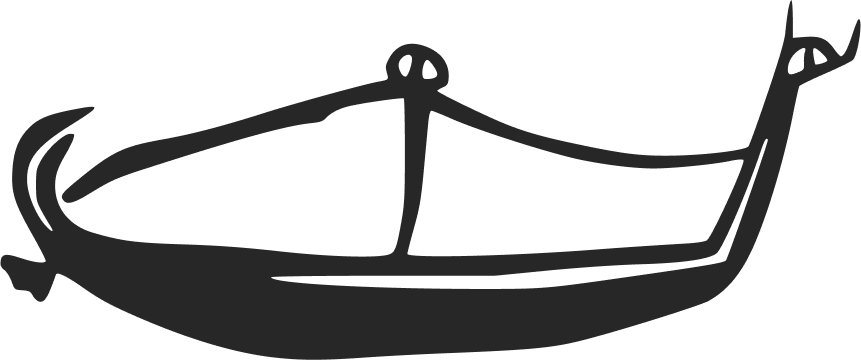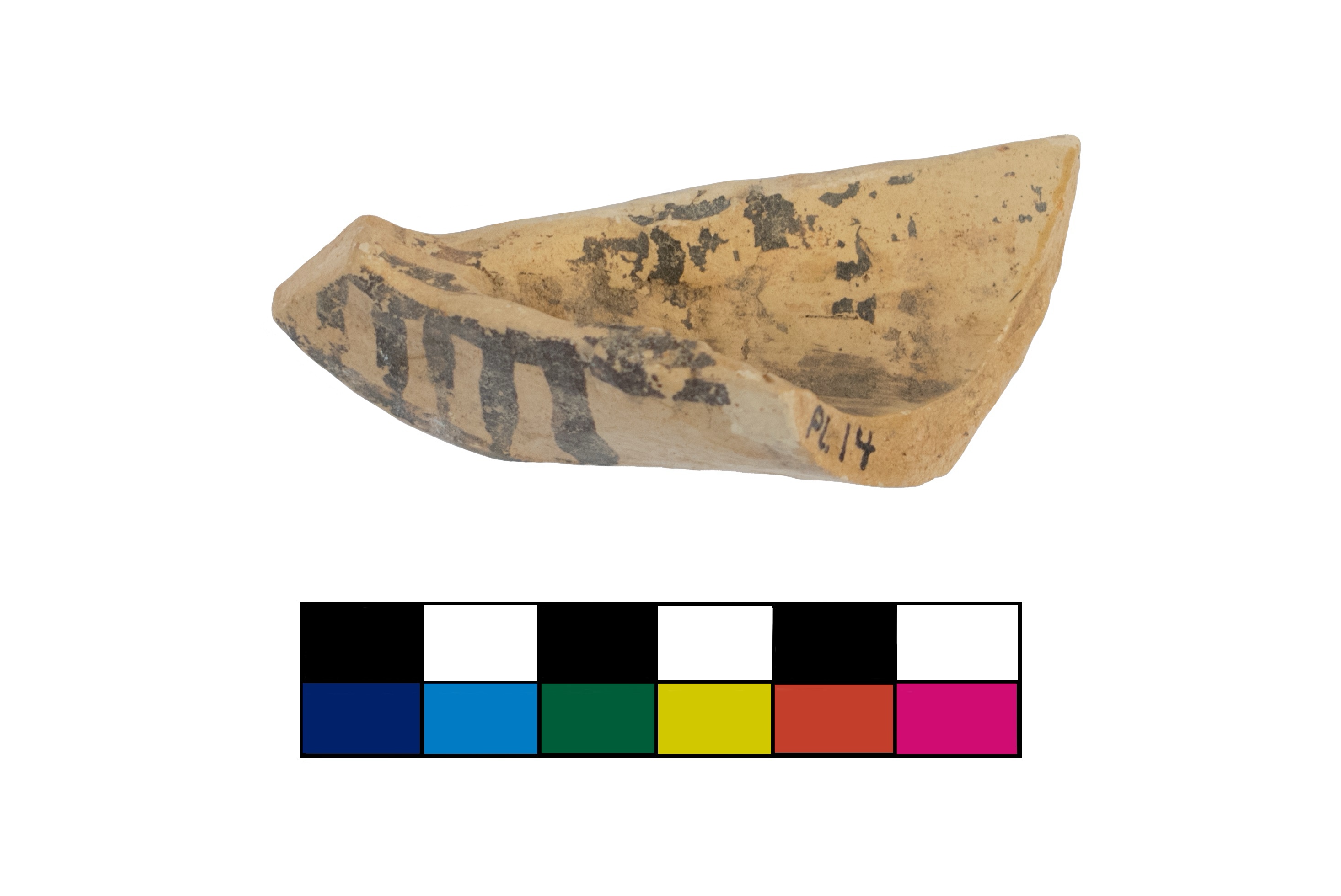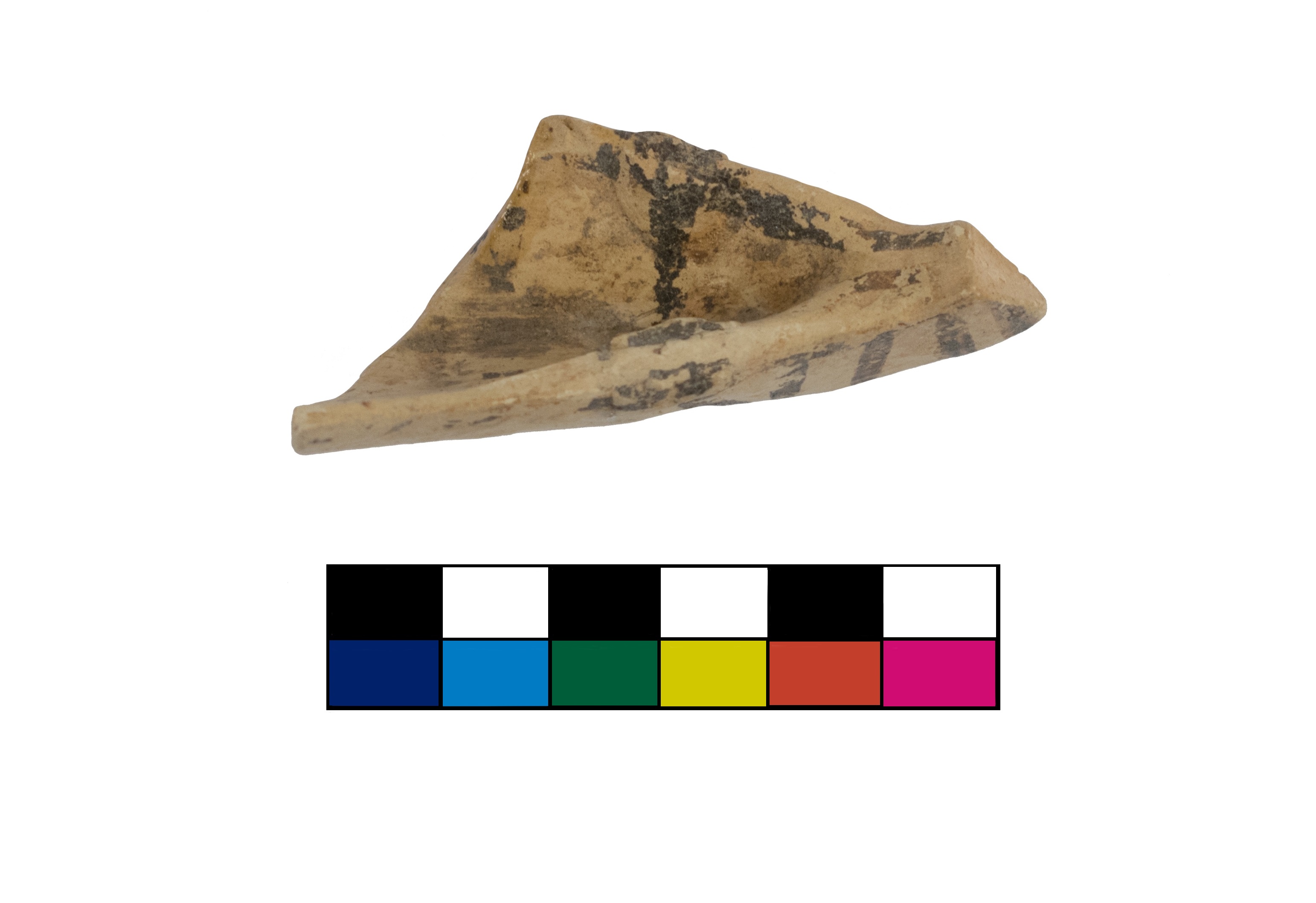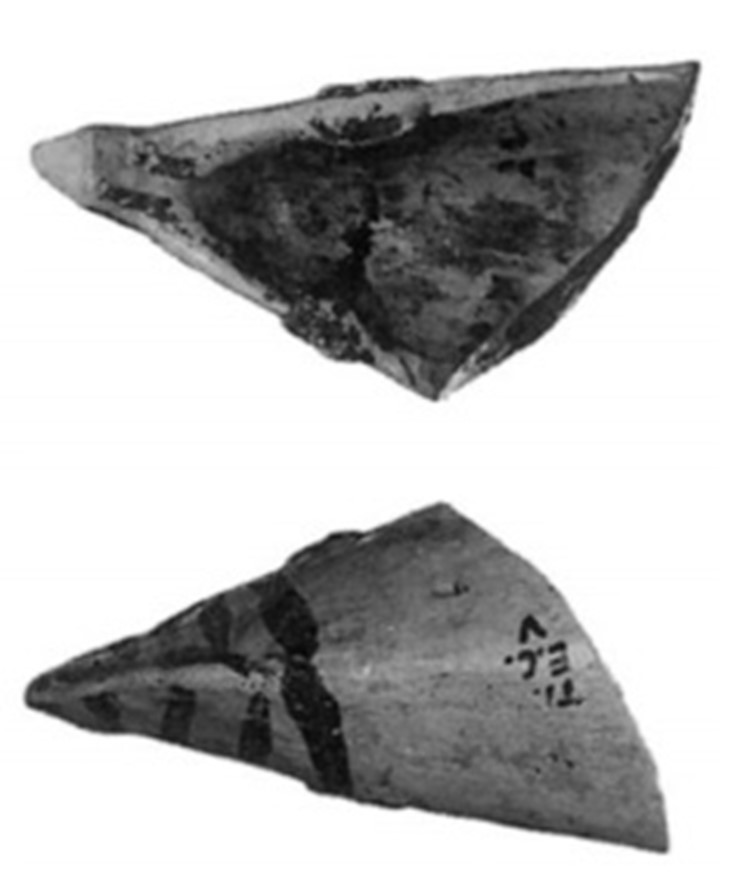Hull fragment preserving one of the extremities. The post has a moulded ridge on the outside of the hull. On either side of the gunwale near the post there are traces of attachment. It is possible that there was a transverse beam there that is now missing. There are traces of dark paint inside the hull. On the outside of the hull near the post are five transversal bands of dark paint.
Small boat
C11
LC IIIA (1200-1100)
Sinda, Tomb 1, East Chamber 13
L: 6.5 cm; H: 2.1 cm; W: 4.5 cm
Fragmentary terracotta model, whitish-buff slip, brownish-black painted decoration
Museum Gustavianum, Uppsala. NWA T1, EC.13 (Sinda II/Cat. I)
Brown 2011: 32-33, fig. 2.5; Dolan 2023: 329-330, no. 8; Furumark and Adelman 2003: 119, pl. 37:14, 39: 14; Knapp 2019: 143
The chamber tomb itself dates to a period prior to the construction of the town. There are no traces of burials. In a subsequent phase, the tomb was emptied and reused for an unknown purpose (sanctuary?) which coincides with Period I of the town (LC IIC). This was followed by the construction of a well with a shaft. Early in LC IIIA (Period III of the town) the tomb was adapted as a refuse pit. It is to this phase that the boat model belongs, and it is therefore out of context.
Brown, M.G. 2011. “Landscapes of Settlement in South-East Cyprus: The Late Bronze Age Origins of a Phoenician Polity.” PhD Thesis, School of History, Classics and Archaeology, Edinburgh University, UK.
Dolan, M. 2023. Ceci n'est pas un bateau: Reassessing terracotta boat models in Late Bronze and Iron Age Cyprus. University of Southhampton. Unpublished DPhil Thesis.
Furumark, A. and C.M. Adelman. 2003. Swedish Excavations at Sinda, Cyprus. Excavations conducted by Arne Furumark 1947-1948. Stockholm: Astrom Editions.
Knapp, A. B. 2018. Seafaring and Seafarers in the Bronze Age Eastern Mediterranean. Leiden: Sidestone Press.





